International Business: Islam, UAE Culture, and HR Recommendations
VerifiedAdded on 2023/06/05
|5
|809
|285
Homework Assignment
AI Summary
This assignment delves into the influence of Islam on international business, specifically focusing on the United Arab Emirates (UAE). It addresses the origins of Islam, the significance of the Quran, and the five pillars of Islam, comparing it with Christianity. It explains the practice of fasting during Ramadan, dietary prohibitions, and the lunar calendar. The assignment also provides recommendations for HR consultants managing Muslim employees, including accommodating prayer times and adjusting work shifts during Ramadan. Furthermore, it examines the demographic composition of the UAE, highlighting the high percentage of expatriates and suggesting ways to preserve the local culture. The assignment concludes with references to support the analysis, offering a comprehensive overview of Islam's impact on business and culture within the UAE. Desklib offers similar solved assignments and study resources for students.
1 out of 5
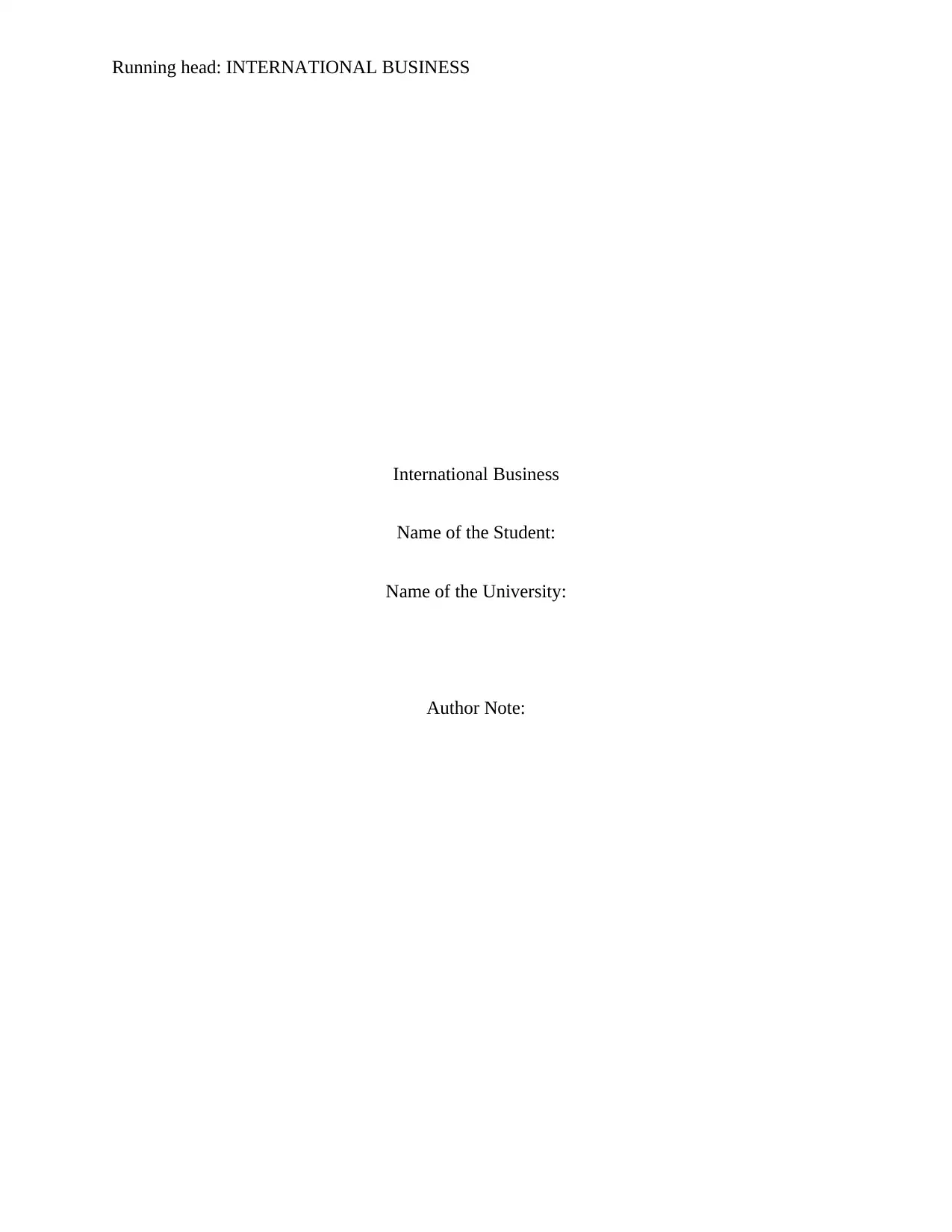
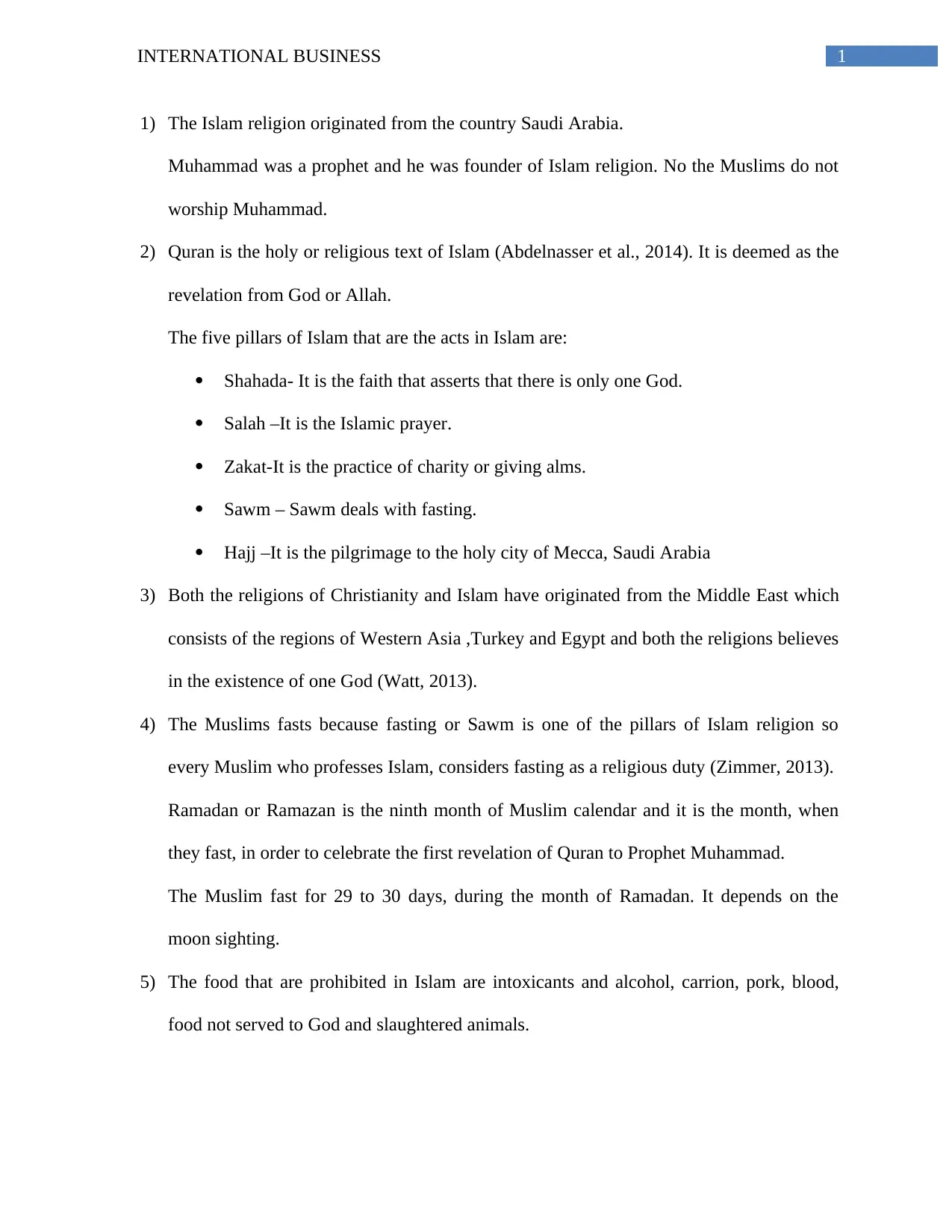
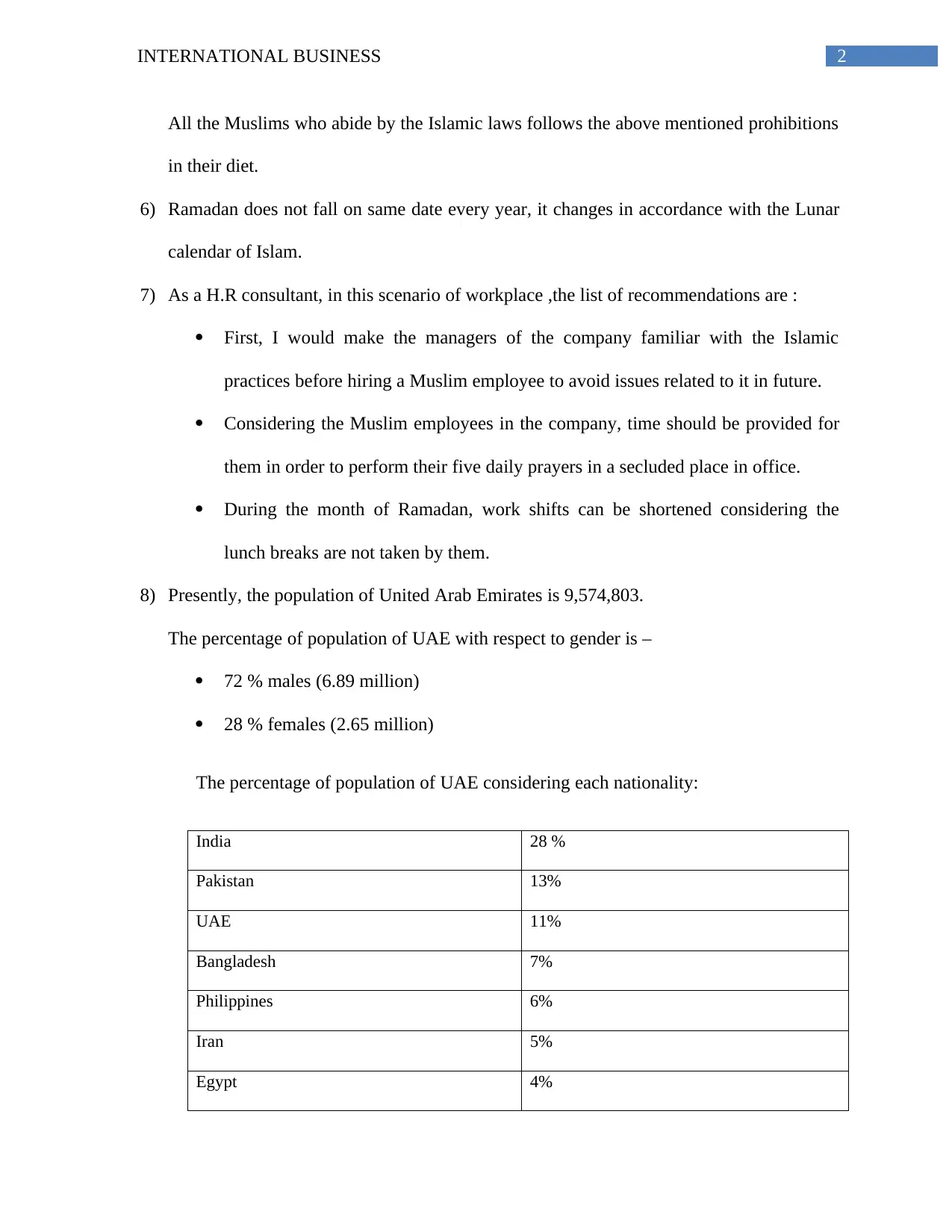

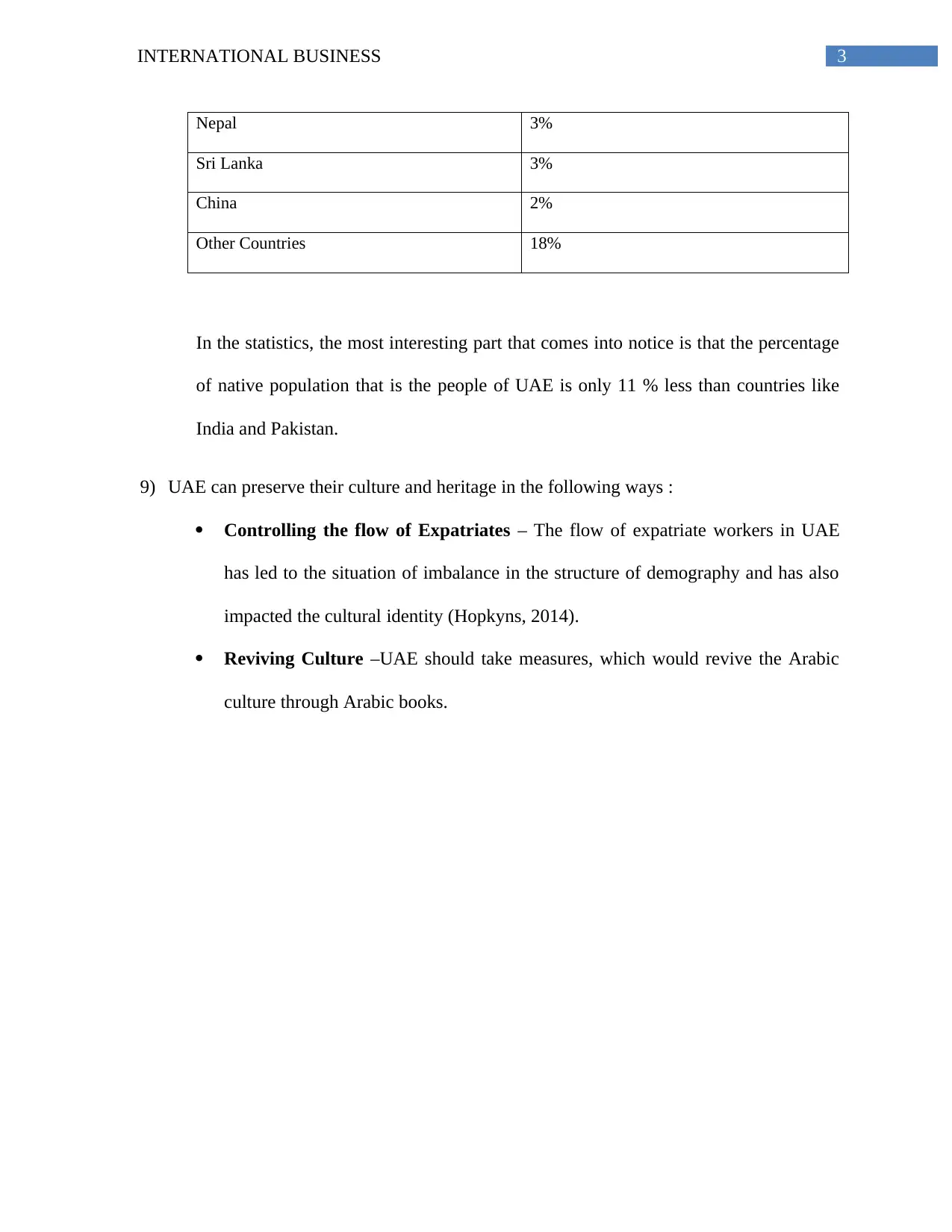
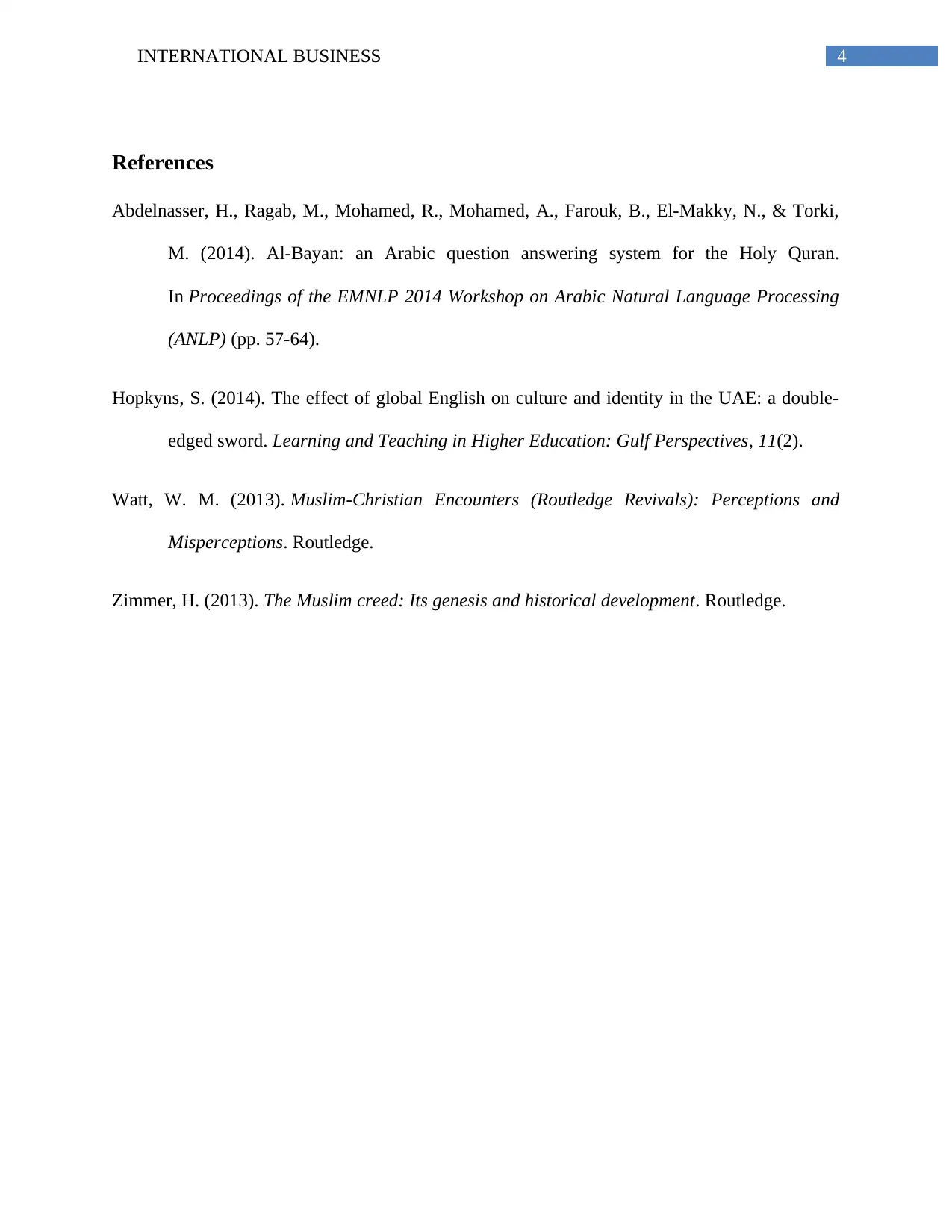





![[object Object]](/_next/static/media/star-bottom.7253800d.svg)